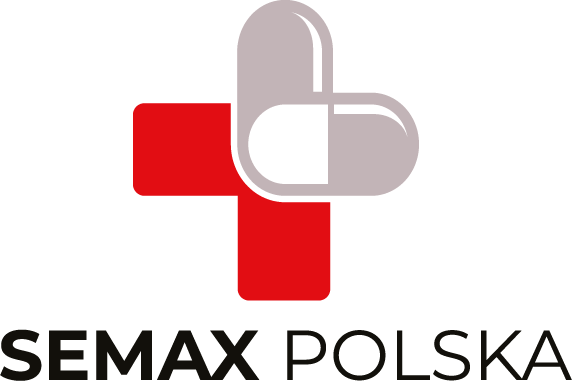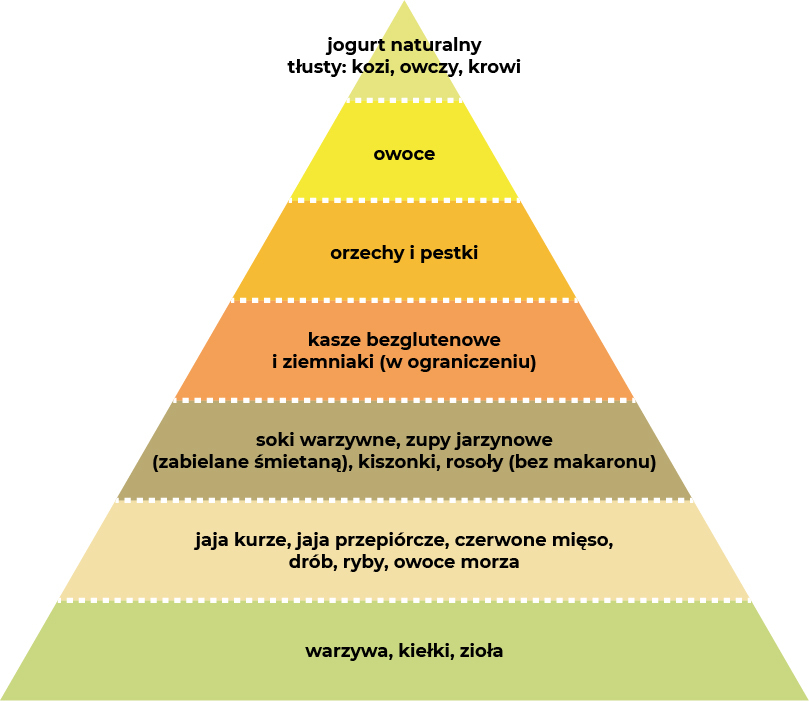
How to prevent cancer? If you want to enjoy a long life - you need to know about it!
Did you know that so far cancer has killed more people than tuberculosis, aids and malaria combined? Which means that the condition caused by cell growth disorders is taking its toll worldwide. Figures from the Central Statistical Office for 2022 speak plainly - the second most common cause of mortality in Poland is cancer. How to take up the fight against cancer to protect yourself in advance?
Table of contents
- Poles at the forefront of cancer deaths
- Food pyramid vs. miracle diets - How to reduce the risk of cancer?
- What vitamins and minerals can actually reduce the risk of cancer?
- Cancer prevention you haven't heard of
Poles at the forefront of cancer deaths
The incidence of cancer in numbers, looks as follows:
- 100,000 Poles a year die from cancer,
- More than 1.17 million Poles are living with cancer,
- For every 100,000 people, there are 440 diagnosed with cancer.
WHO data shows that cancer will kill more and more. It is also one of the most common causes of premature death.
According to the "National Cancer Profiles Poland 2023" report, Poland has one of the highest mortality rates among European countries. It is ranked in the infamous 5th place. It is worth noting that Poles do not suffer from cancer most often at all, but the percentage of people who die is one of the highest. This may be due to the relatively low availability of treatment. Poland has one of the lowest densities of radiation therapy centers. There should also be criticism of the lifestyle of Poles, who shy away from regular examinations, abuse stimulants, neglect physical activity and healthy eating. All this translates into the risk of developing cancer.
The distribution of cancer incidence in 2020 was as follows:
| WOMEN | MEN |
| 25 % breast cancer | 23% prostate cancer |
| 12 % lung cancer | 14% lung cancer |
| 11 % colorectal cancer | 13% colorectal cancer |
| 10% uterine cancer | 9% bladder cancer |
| 5% ovarian cancer | 4% gastric cancer |
| 36% others | 37% other |
The report cites factors contributing to an increased risk of cancer among adults, including:
- smoking,
- exposure to air pollution,
- drinking alcohol,
- Overweight and obesity.
Food pyramid vs. miracle diets - How to reduce the risk of cancer?
Surely you have seen more than once the food pyramid, which was created to make the public aware of how much, and in what proportions, to consume certain ingredients.
A food pyramid is a graphical representation of healthy eating principles that helps people plan their diets in a balanced and nutrient-appropriate way. The pyramid is often used as an educational tool to help people make decisions about their daily menus.
There are different levels on the food pyramid, each representing a food group that we should consume in appropriate amounts. The new pyramid has been updated and at the base of the pyramid is physical activity, which is often overlooked but is crucial for proper metabolism. The key principles of the food pyramid include:
In opposition to a balanced diet are miracle diets, which are designed specifically to cure cancer. These include, among others, the Gerson diet. An alternative and controversial treatment that has its supporters, but also its enemies. Is there actually anything to be afraid of?
Nutritionists and scientific institutions speak plainly:
| The Gerson diet is ineffective and dangerous. |
It should be noted that there is no scientific evidence that the diet actually cures cancer, and the National Cancer Institute warns that it can even be life-threatening. The Gerson diet is very restrictive and is based on consuming a lot of fruit and vegetable juices and avoiding many food groups. This can lead to nutrient deficiencies, such as protein, fats, vitamins and minerals, which are essential for health. In addition, the implementation of the diet is the risk of infection. Coffee therapy, which is part of the Gerson diet, involves introducing coffee into the intestines through an enema.
What vitamins and minerals can actually reduce the risk of cancer?
Cancer prevention is a complicated topic, and nutrition can play a key role in prevention. Here are some vitamins and minerals that are often studied for their potential impact on cancer risk:
- Vitamin C: is a powerful antioxidant that helps neutralize free radicals in the body. Studies suggest that vitamin C may help protect cells from DNA damage, which may reduce the risk of cancer.
- Vitamin D: plays an important role in regulating cell growth and differentiation and immune system function. Vitamin D deficiency has been linked to some types of cancer, so it is important to maintain normal levels.
- Vitamin E: like vitamin C, is an antioxidant that helps protect cells from damage.
- Selenium: is a mineral that is a component of many antioxidant enzymes. Epidemiological studies indicate, note a correlation between low levels of selenium in the body and an increased risk of prostate, lung or colon cancer.
- Beta-carotene: Is a precursor to vitamin A and is an antioxidant. It can help protect cells from damage. Mice given beta-carotene saw less tumor growth than other individuals.
- Folic acid: Supports DNA repair processes and regulates cell division. A lack of folic acid can affect the stability of the genome and increase the risk of genetic damage leading to cancer.
Cancer prevention you haven't heard of
There are many ways to keep us healthy and reduce the possibility of getting cancer. People who are at increased risk of contracting the disease use other available measures, in addition to a healthy lifestyle, that have a preventive effect. These include epitalone dosage - a synthetic peptide that is being investigated for its potential health benefits, including its potential to affect aging and immune function.
Theoretically, certain properties of the peptide, such as affecting the activity of telomerase (an enzyme involved in maintaining the length of telomeres, which protect the ends of chromosomes from damage), could affect the aging process and play a role in preventing certain diseases, including cancer.
How to use epitalon? The most common is epitalon spray. That is, the intranasal form. It is the least invasive and produces the desired results. It is recommended to use about 1 mg of the substance per day, i.e. about 4 puffs.
Regarding storage of the peptide, there are some guidelines for this. Epitalone is best stored at 36°F to 46°F (2°C to 8°C), which corresponds to standard refrigerator storage conditions. Keeping the temperature low can help maintain the stability and effectiveness of the peptide. In addition, exposure of the substance to direct sunlight or artificial light should be avoided. Light can affect the stability and properties of the peptide.




